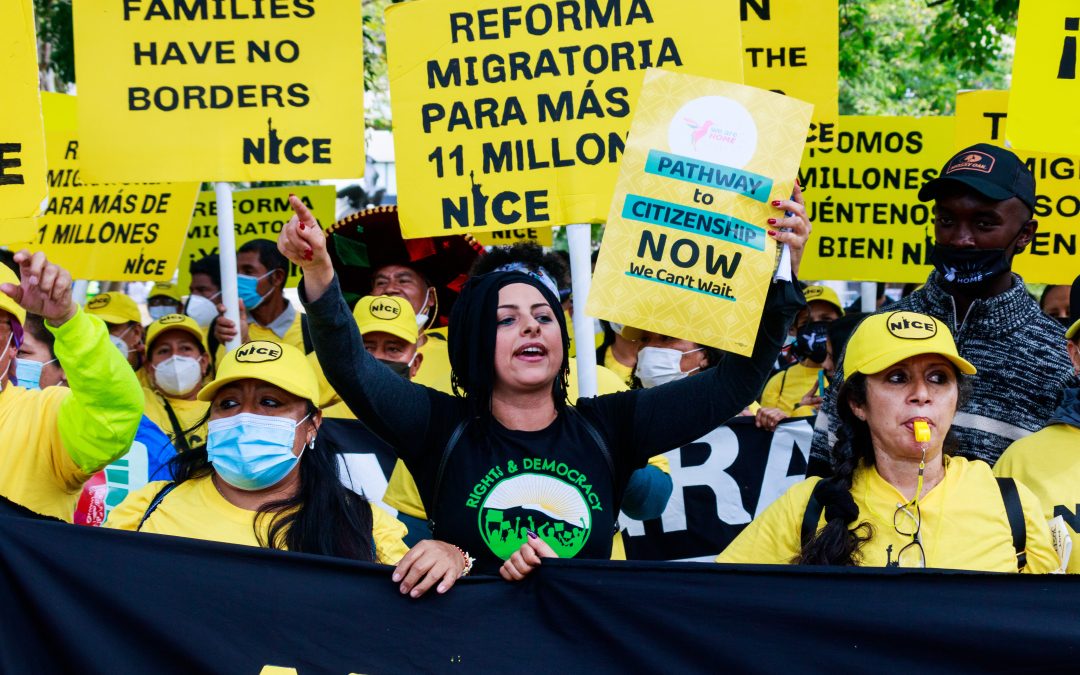WASHINGTON — The American Civil Liberties Union is challenging the constitutionality of federal immigration bond proceedings in Maryland.
In Miranda v. Garland, Marvin Dubon Miranda and two other men who had been held by federal immigration authorities in Maryland argue the immigration judge who presided over their bond hearings violated their Fifth Amendment right to due process by requiring them to prove they were not flight risks or dangers to the community or by setting their bond unreasonably high.
Attorneys with the ACLU, the ACLU of Maryland and the Capital Area Immigrants’ Rights Coalition representing the men have proposed that the case be a class action for all detained individuals before the immigration court in Baltimore, the only one in Maryland.
The federal government appealed a preliminary injunction covering immigrants in Maryland that requires the government to prove immigrants in deportation proceedings are flight risks or risks to the community in order to hold them in detention.
The preliminary injunction also requires immigration judges to take into account a detainee’s ability to pay when setting bond as well as their suitability for alternative conditions for release like electronic monitoring.
Although the preliminary injunction only covers Maryland, the ACLU said in a news release that the policies challenged in this case apply nationwide.
Nick Steiner, an attorney with the ACLU of Maryland representing the plaintiffs, said in an interview that this case will impact “thousands of Maryland noncitizens.”
He said placing the burden of proof on detainees to show they are eligible for release is “fundamentally unfair.”
“In most every other proceeding, it’s the government that has to prove why a person should be deprived of their liberty before putting them in jail or in detention,” Steiner said.
Melody Vidmar, a Capital Area Immigrants’ Rights Coalition attorney on the case, said she has had several of her clients get released because of the preliminary injunction.
“We’ve seen firsthand the positive effects that it’s had on our clients and their families,” Vidmar said.
At an Oct. 27 hearing before a 4th U.S. Circuit Court of Appeals panel, ACLU attorney Carmen Iguina Gonzalez argued the preliminary injunction requires “basic procedural protections” in immigration bond hearings.
“This case is about whether the government can deprive individuals of their physical liberty for months or even years without the basic procedural protections that due process requires,” Iguina Gonzalez said.
But Courtney Moran, an attorney for the government, said that while noncitizens are entitled to due process in removal proceedings, due process looks different in different proceedings. She said the Supreme Court has held that the power of “the political branches” is “at its zenith” in matters of immigration.
“There are certain rules that can be applied in these proceedings that may not necessarily apply to citizens,” Moran said.
She argued there is adequate due process in immigration detention decisions because detainees get multiple appeals and can request a rehearing if there is a material change in their circumstances.
The Rev. Carl Gregg, minister of the Unitarian Universalist Congregation of Frederick, said that while his church has not taken an official position on this case, “we are in general very strong supporters of immigration justice.”
He supported the ACLU’s efforts in “seeing if civil liberties are being violated, if what is happening is unconstitutional or discriminatory against immigrants.”
“Our (Unitarian Universalist) first principle is the inherent worth and dignity of every person,” Gregg said. “Making sure that’s respected for all human beings, immigrants or otherwise, is certainly one of our religious values.”


